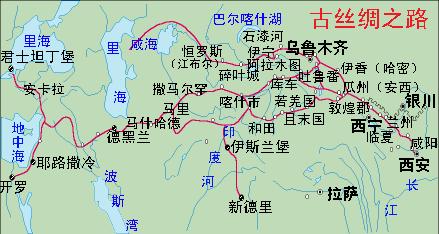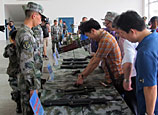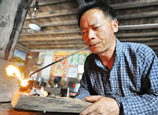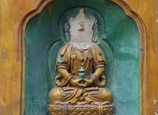
 |
The term Silk Road refers to the ancient trade route starting from the ancicent city Chang'an (now Xi'an), which is the political, economic and cultural center of China and connecting to Asia, Africa and Europe. On this international street full of history, colorful silks, Chinese porcelain and spices circulate in endless stream , making important contributions to economic and cultural exchanges between East and West in ancient times. As the early version of economic globalization, the trade route was said to be the largest commercial hub in the world.
After years of transition in the early 2000s, trade and investment experienced a renaissance in the ancient Silk Road . The Central Asian countries hope to expand cooperation with China to increase investment in transport, telecommunications, textiles, food, pharmaceuticals, chemicals, processing of agricultural products, production of consumer goods, manufacturing of machinery and other industries, and advance cooperation in agriculture, desertification control, solar energy, environmental protection, etc., and to inject "fertilizer" and "vitality."
President Xi Jinping delivered a speech at Nazarbayev University, proposing to build "economic zone of the Silk Road" on September 7, 2013. To strengthen economic ties and deepen more mutual cooperation between European and Asian countries, and enlarge space for development , an innovative way of cooperation can be used to build the "economic zone Route Silk", this is a great way that will benefit the peoples of all countries along this road.
The Shaanxi Province, the birthplace of my family, is the starting point of the ancient Silk Road. Standing here and looking back the history, I seem to hear the sound of camels bells echoing in the mountains. All of these make me very attached." These are the words that President Xi Jinping delivered at his important speech at the Nazarbayev University.
















 Man commits suicide, rescued by his wife in NE China
Man commits suicide, rescued by his wife in NE China


![]()
